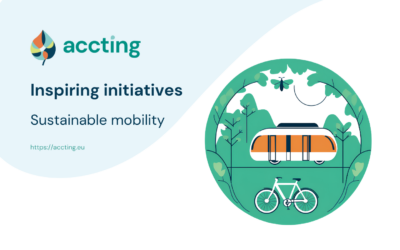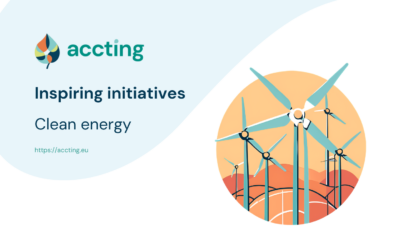It’s not just about business, it’s about community: Empowering Roma green entrepreneurs in Albania
In Albania, a quiet transformation is taking root. One that weaves together sustainability, entrepreneurship, and community empowerment. At the heart of it is the Institute of Romani Culture in Albania (IRCA), which, through its ACCTING pilot project, has helped Roma micro-entrepreneurs take bold steps toward environmentally sustainable business practices.
Marsela Isaku, project lead at IRCA, has witnessed this transformation first-hand. “Our project empowered Roma micro-entrepreneurs in Albania to adopt environmentally sustainable business practices through training, equipment support, and community networking,” she explains. And the results are already tangible.
One of the most striking outcomes? The creation of an informal coalition of Roma Green Micro-Entrepreneurs, now connected through a newly launched online platform that facilitates peer learning, visibility, and continued support.
But behind this structural achievement lies a powerful human story.
“A standout moment was awarding the first prize to a young Roma entrepreneur who runs a medicinal herbs business — not only is he creating green income opportunities, but he’s also revitalising his rural community and offering employment to others.”
This moment captures the spirit of the project: sustainable practices as a vehicle for autonomy, dignity, and shared progress.
Yet, the path was not without challenges. Many participants, often excluded from formal education systems, initially struggled with the complexity of business and financial concepts.
“We addressed this by using interactive, hands-on training methods and simplifying the content into practical exercises,” Marsela says, making it not only accessible but empowering.”
What also surprised the team was the emergence of strong female leadership. “Over half of the supported businesses [were] led by women or girls — this exceeded our expectations and highlighted untapped potential in the community.”
Sustainability as a mindset shift
One of the most profound impacts of the project wasn’t just economic, it was ideological.
“At the beginning of the project, many participants viewed environmental sustainability as a distant or secondary concern—something more relevant to larger companies, not micro-enterprises like theirs.,” Marsela reflects.
“However, through practical training sessions and tailored support, they started to see the clear link between sustainability and business success. [They] began to understand that integrating eco-friendly practices (…) could improve efficiency, lower costs, and attract more customers.”
What was once abstract became concrete, relevant, and achievable. Participants began to see that sustainability wasn’t a burden, it was a smart, strategic choice.
What’s next? Scaling up a community-led model
As the ACCTING project draws to a close, IRCA isn’t slowing down. Plans are underway to strengthen the coalition, expand the online platform, and offer new training in digital and financial literacy.
Marsela believes this model is scalable. With context-specific adjustments and culturally sensitive facilitation, it could thrive in other regions and among other vulnerable groups.
This project is a reminder that inclusive green transitions are not only possible but powerful when built from the ground up. It shows that when people are equipped with tools, trust, and space to grow, they become agents of change not just in their businesses, but in their communities.
This initiative is one of ten pilot projects funded by ACCTING to support the reduction of social inequalities in relation to the Green Deal.


